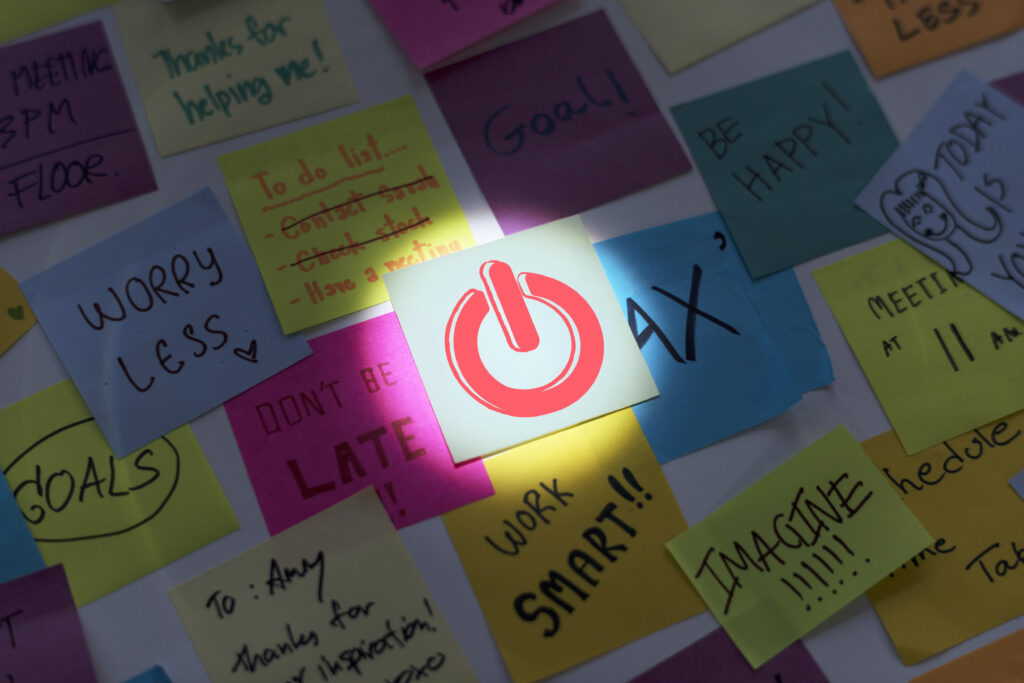Startup mistakes to avoid in 2025 are more critical than ever for entrepreneurs navigating today’s competitive market. Starting a business now comes with challenges that didn’t exist even five years ago. With 90% of startups failing overall and 966 U.S.-based tech startups shutting down in 2024 alone, the risks are at an all-time high. The most successful founders aren’t just the ones with innovative ideas—they’re the ones who study startup mistakes to avoid before making them.
Recent data reveals that 70% of startups fail between years two and five, with the top causes being lack of market need (42%), running out of funding (29%), and team issues (23%). Truly understanding startup mistakes to avoid in 2025 means analyzing fresh failure data and adapting to new business trends that shape today’s ecosystem.
With a 25.6% surge in startup failures from 2023 to 2024, it has become essential to learn from these costly errors. This guide highlights the most dangerous startup mistakes to avoid, backed by real statistics and expert insights, so entrepreneurs can increase their chances of success.
Understanding Common Startup Problems in Today’s Market
Before diving into specific mistakes, it’s important to recognize that startup problems have evolved significantly. The challenges facing entrepreneurs in 2025 are more complex than ever, involving everything from AI integration to sustainability concerns. Most startup problems stem from inadequate market research and poor financial planning, but today’s entrepreneurs also face unique pressures around technology adoption and changing consumer expectations.
1. Launching Without Proper Market Research
The biggest mistake entrepreneurs make is assuming they understand their market without conducting thorough research. 35% of startups struggle to find a market for their product , making this one of the most critical startup mistakes to avoid.
Many founders fall in love with their solution before validating the problem exists. They spend months building features nobody wants, burning through cash and time. In 2025, this mistake is even more costly because markets change rapidly, and consumer behavior shifts faster than ever.
How to avoid this mistake:
- Conduct at least 50 customer interviews before building anything
- Create detailed buyer personas based on real data, not assumptions
- Test your value proposition with potential customers before investing heavily
- Use tools like surveys, focus groups, and prototype testing to validate demand
The most expensive mistakes in business often involve premature scaling and poor hiring decisions, but inadequate market research tops the list because it affects every other business decision you’ll make.
2. Poor Financial Management and Cash Flow Planning
Financial mismanagement kills more startups than any other single factor. 82% of startups face cash flow problems , and running out of funding accounts for 29% of all startup failures. Learning about startup mistakes to avoid can save your business from joining the 90% failure rate, and financial planning sits at the top of that list.
The problem isn’t just about raising money it’s about managing it properly. Many entrepreneurs underestimate their burn rate, overestimate their revenue projections, and fail to plan for unexpected expenses. In 2025, with economic uncertainty and tighter funding markets, these mistakes become fatal faster than ever.
Critical financial mistakes to avoid:
- Not maintaining 12-18 months of runway at all times
- Mixing personal and business finances
- Failing to track key financial metrics weekly
- Underestimating the time it takes to close deals
- Not planning for seasonal fluctuations in revenue
Understanding how to overcome startup challenges requires building strong financial foundations from day one. Create detailed financial projections, track your burn rate religiously, and always plan for the worst-case scenario.

3. Premature Scaling Before Product-Market Fit
Scaling too early is one of the most dangerous startup mistakes to avoid in 2025. Many entrepreneurs mistake early traction for product-market fit and begin scaling operations, hiring aggressively, and increasing marketing spend before they’ve truly validated their business model.
This mistake is particularly common in today’s environment where venture capital was abundant in recent years, leading founders to believe growth at any cost was the right strategy. However, with 58% of Q1 2025 VC funding directed toward AI startups , competition for capital is fiercer, and investors are demanding clearer paths to profitability.
Signs you’re scaling too early:
- Customer acquisition costs are rising faster than lifetime value
- You’re constantly firefighting operational issues
- Employee productivity is declining despite hiring more people
- You can’t clearly articulate why customers choose you over competitors
The key to understanding how to overcome startup challenges lies in proper preparation and planning. Focus on achieving true product-market fit before scaling, which means having customers who can’t live without your product and are willing to pay premium prices for it.
4. Building the Wrong Team or Hiring Too Fast
Team-related issues cause 23% of startup failures, making hiring one of the most critical startup mistakes to avoid. 55% of startups struggle with hiring and retaining qualified talent , and in 2025’s competitive job market, this challenge has only intensified.
The biggest startup problems in 2025 include AI integration challenges and sustainability concerns, but they also include finding people who can adapt to rapidly changing business environments. Many founders hire too quickly, prioritizing speed over cultural fit, or they hire people who were successful at larger companies but can’t handle the ambiguity and resource constraints of startup life.
Common hiring mistakes:
- Hiring based on resumes rather than demonstrated ability to execute
- Not defining company culture and values early
- Failing to check references thoroughly
- Hiring friends or family without proper vetting
- Not creating clear job descriptions and success metrics
Learning from mistakes in business can help entrepreneurs build more resilient companies. Take time to define your company culture, create structured interview processes, and prioritize cultural fit alongside technical skills.
5. Ignoring AI Integration and Technology Trends
One of the newest startup mistakes to avoid in 2025 is failing to integrate artificial intelligence into your business model. With 58% of Q1 2025 VC funding going to AI startups , companies that ignore this trend risk becoming obsolete quickly.
This doesn’t mean every startup needs to become an AI company, but understanding how AI can improve your operations, customer experience, or product offering is essential. Startups that leverage AI effectively see 30% increases in customer engagement , while those that ignore it fall behind competitors who embrace these tools.
Ways to integrate AI effectively:
- Use AI for customer service and support automation
- Implement AI-driven analytics for better decision making
- Automate repetitive tasks to improve efficiency
- Personalize customer experiences using machine learning
- Use AI tools for content creation and marketing
Avoiding mistakes in business starts with understanding why 90% of startups fail, and increasingly, technology adoption plays a crucial role in that success or failure.
6. Developing Unclear or Unsustainable Business Models
30% of Indian startups fail due to unclear business models , and this problem isn’t limited to any single geography. Many entrepreneurs focus so heavily on their product that they neglect to develop a clear, sustainable way to make money.
In 2025, investors are particularly focused on profitability and sustainable growth rather than growth at any cost. Startups need to demonstrate clear paths to profitability, understand their unit economics, and have realistic revenue projections based on market data rather than wishful thinking.
Business model red flags:
- Relying on advertising revenue without massive scale
- Assuming customers will pay premium prices without validation
- Building marketplace businesses without solving the chicken-and-egg problem
- Creating subscription models without demonstrating ongoing value
- Depending on viral growth without understanding retention metrics
The most common startup mistakes to avoid include poor market research and financial mismanagement, but unclear business models tie these problems together and amplify their impact.
7. Underestimating Competition and Market Dynamics
Many entrepreneurs believe their idea is so unique that they don’t have competition, or they underestimate existing competitors’ ability to adapt and respond. This is one of the most dangerous startup mistakes to avoid because it leads to poor strategic planning and inadequate differentiation.
Competition accounts for 19% of startup failures, and in 2025’s rapidly evolving market, new competitors can emerge quickly. Understanding your competitive landscape isn’t just about direct competitors—it includes substitute products, potential new entrants, and changing customer preferences.
Competitive analysis mistakes:
- Only looking at direct competitors, not substitute solutions
- Underestimating how quickly large companies can enter your market
- Failing to monitor competitor pricing and feature changes
- Not understanding your competitive advantages clearly
- Assuming customers won’t switch to alternatives
Learning how to overcome startup challenges requires studying successful companies and failure cases. Spend time understanding not just who your competitors are today, but who they might be tomorrow.
8. Neglecting Customer Feedback and Iteration
One of the most avoidable startup mistakes to avoid is building products in isolation without continuous customer feedback. Many entrepreneurs spend months perfecting their product before showing it to customers, only to discover they’ve built something nobody wants.
In 2025’s fast-moving market, the ability to iterate quickly based on customer feedback is more important than ever. Companies that listen to their customers and adapt quickly have significant advantages over those that stick rigidly to their original vision.
Customer feedback mistakes:
- Waiting too long to get customer input
- Only listening to positive feedback and ignoring criticism
- Not having systematic processes for collecting feedback
- Failing to close the feedback loop with customers
- Making changes based on feedback from non-target customers
Understanding how to avoid silly mistakes starts with learning from other entrepreneurs’ experiences, and customer feedback provides the most direct path to avoiding costly errors.
9. Poor Marketing and Customer Acquisition Strategy
Many startups build great products but fail to develop effective marketing strategies. They assume that if they build something good, customers will find them naturally. This “build it and they will come” mentality is one of the most common startup mistakes to avoid.
Effective marketing in 2025 requires understanding multiple channels, measuring return on investment carefully, and adapting quickly to changing platform algorithms and customer preferences. The most successful startups develop systematic approaches to customer acquisition that can scale predictably.
Marketing mistakes to avoid:
- Trying to be everywhere instead of focusing on channels that work
- Not tracking customer acquisition costs and lifetime value
- Focusing on vanity metrics instead of revenue-driving activities
- Neglecting content marketing and SEO for long-term growth
- Not testing and optimizing marketing campaigns systematically
Addressing startup problems early can prevent costly failures down the road, and marketing problems compound quickly if not addressed systematically.
10. Failing to Plan for Sustainability and ESG Concerns
One of the newest categories of startup mistakes to avoid in 2025 involves ignoring environmental, social, and governance (ESG) concerns. 25% projected increase in sustainability-focused startups shows that this isn’t just a trend—it’s becoming a business requirement.
Consumers, employees, and investors increasingly expect companies to demonstrate environmental responsibility and social impact. Startups that ignore these concerns risk losing customers, struggling to hire top talent, and missing out on investment opportunities.
Sustainability considerations:
- Environmental impact of your operations and supply chain
- Social impact on communities and stakeholders
- Governance practices and ethical business operations
- Transparency in reporting and communications
- Long-term sustainability of your business model
Knowing how to avoid silly mistakes can prevent unnecessary business failures, and ignoring ESG concerns is becoming an increasingly costly oversight.
11. Legal and Regulatory Oversights
Legal problems can kill startups quickly, yet many entrepreneurs neglect proper legal foundations. From intellectual property protection to employment law compliance, legal oversights represent some of the most expensive startup mistakes to avoid.
In 2025, with increasing regulation around data privacy, AI usage, and digital business models, legal compliance is more complex than ever. Startups need to invest in proper legal counsel early and build compliance into their operations from the beginning.
Common legal mistakes:
- Not protecting intellectual property properly
- Failing to comply with data privacy regulations
- Inadequate employment contracts and policies
- Not understanding industry-specific regulations
- Neglecting proper corporate structure and governance
The key to understanding how to overcome startup challenges through strategic planning includes building strong legal foundations that protect your business as it grows.
12. Lack of Long-term Vision and Strategic Planning
Finally, one of the most fundamental startup mistakes to avoid is focusing only on short-term goals without developing a clear long-term vision. Many entrepreneurs get caught up in day-to-day operations and lose sight of where they want their company to be in five or ten years.
Strategic planning becomes more important as markets become more competitive and change more rapidly. Startups need to balance immediate execution with long-term strategic thinking, ensuring they’re building sustainable competitive advantages rather than just solving immediate problems.
Strategic planning essentials:
- Clear vision for where the company will be in 5-10 years
- Understanding of market trends and how they affect your business
- Plans for scaling operations, technology, and team
- Competitive positioning and differentiation strategies
- Exit strategy considerations and investor expectations
Learning from Critical Mistakes in Business That Destroy Companies
The data is clear: learning from mistakes in business that destroy companies is essential for entrepreneurial success. With Enterprise SaaS accounting for 32% of startup failures , followed by consumer startups at 11%, the patterns are consistent across industries.
The most successful entrepreneurs aren’t those who never make mistakes; they’re those who learn from others’ mistakes before making them themselves. By understanding these 12 critical startup mistakes to avoid in 2025, you can significantly improve your chances of building a successful, sustainable business.
Remember that avoiding these mistakes isn’t just about survival it’s about positioning your startup for long-term success in an increasingly competitive market. The entrepreneurs who study failure data, learn from others’ experiences, and build systematic approaches to avoid common pitfalls are the ones most likely to join the 10% of startups that succeed.
Take time to evaluate your current business against each of these potential mistakes, create systems to avoid them, and remember that prevention is always less expensive than correction. Your future self—and your investors will thank you for the effort you put into avoiding these costly errors today.





